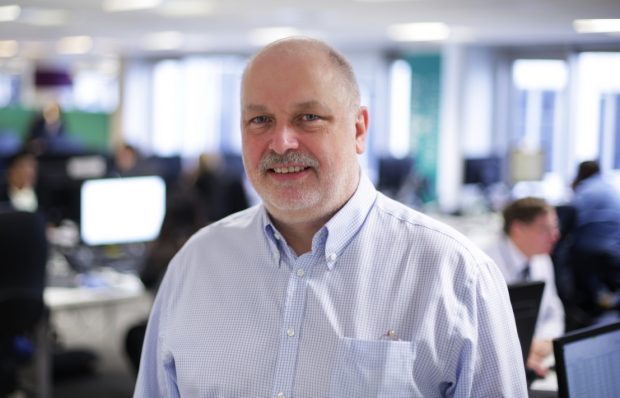Theo Blackwell discusses how the soon-to-be-published Smarter London Together strategy document will promote common standards and skills, and help councils use planning powers to promote connectivity
London’s chief digital officer Theo Blackwell has offered a sneak peek of the principles and goals that will inform his soon-to-be-published smart-city plans.
Shortly before appointing Blackwell as the capital’s first-ever CDO last year, mayor Sadiq Khan said that he wanted to “transform London into the world’s leading smart city”. In January this year the city launched a “listening exercise” seeking input from citizens, businesses, and the public and third sectors as to how data and digital tools could be better used to help London achieve this grand aim.
The publication of the Smarter London Together plan is about two weeks ago away but, speaking today at the Local Government ICT Summit hosted in London by PublicTechnology parent company Dods, Blackwell offered a sneak peek of the ideas that will form the bedrock of his strategy.
“It isn’t going to be a big, static digital masterplan for the city – it is an enabling document, to enable us to invest public money,” he said.
The plan will be built around five pillars.
Related content
- ‘The main challenge is how we get London to collaborate better’ – city’s first CDO Blackwell unveils top priorities
- ‘I cannot buy a promise’ – strategy chief of UK’s fastest-growing city on the challenges facing smart cities
- Bristol moves past London to be named UK’s top smart city
The first of these is fostering citywide collaboration and innovation. Work in this area will be helped by the creation of a dedicated London Office for Technology and Innovation, according to Blackwell.
“We are going to develop a number of common standards and design principles,” he said.
The second string of the plan will be the establishment of “a new city deal for data”, including policies for data sharing, and encompassing the work of the London Office of Data Analytics.
The third element of the new smart-city plan is ensuring “world-class connectivity”. This strand will not only focus on the tech infrastructure, but also on how local government can use things like planning powers to help drive connectivity.
The penultimate ambition of the plan will be “digital capability and staff”, which Blackwell stressed is not just about recruiting leaders, but cultivating education and professional skills in the areas of digital and data.
The final core element of the plan will focus on ethics and the responsible use of technology.
“This is about user-centred services, and how do we put the citizen at the heart of what we do,” said Blackwell. “We put a lot of time and effort into listening first before we develop policy.”
The soon-to-be-published plan follows on from the Smart London Plan that was put out by then-mayor Boris Johnson in 2013. Blackwell said that, while the previous strategy was primarily focused on systems, the new plan takes as its starting point citizens, and the services they need.
“A smart London is a connected and responsive city,” part of the new strategy will read. “It enables greater data innovation to meet citizens’ needs.”



